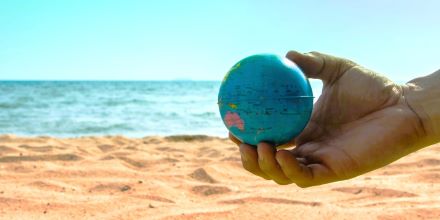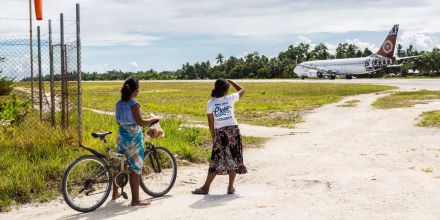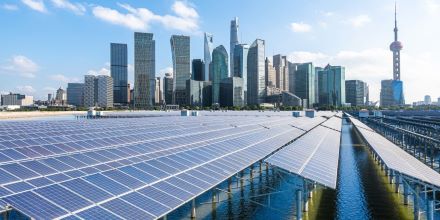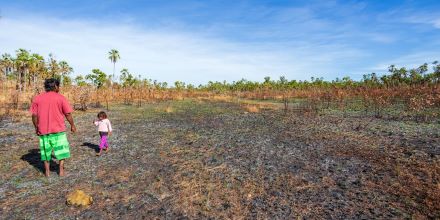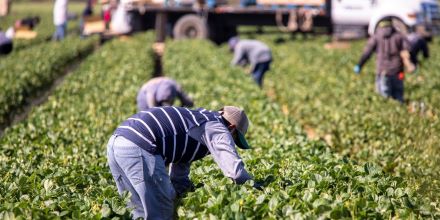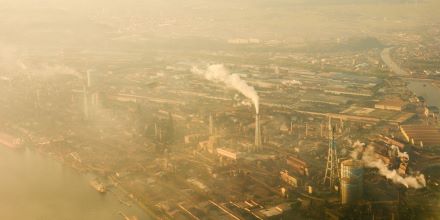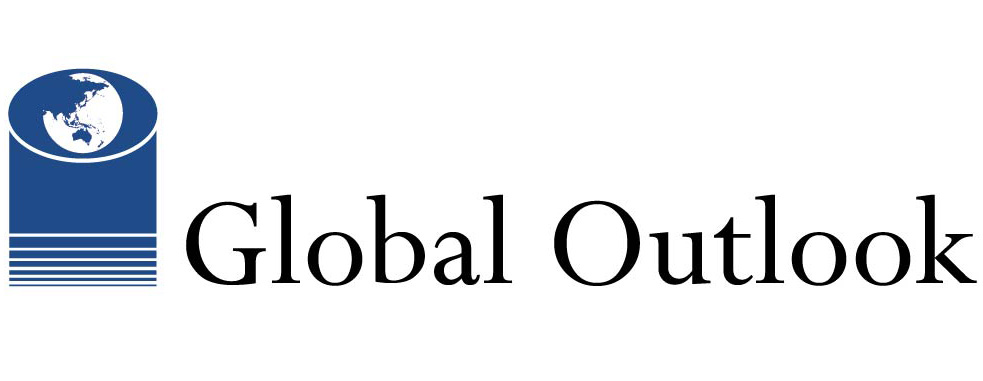
Curated expert opinion on intractable contemporary issues
Global Outlook: Climate Change and Conflict
Climate Change, Not China, the Most Important Security Concern for Pacific Island Countries
By Volker Boege | 02 August, 2022
The meeting of the leaders of the Pacific Island Forum (PIF) countries in Suva, Fiji, in mid-July drew more international attention from beyond the region than usual, as it took place at a time of increasing geo-strategic competition between USA and China. Moreover, it was the first in-person meeting of leaders since 2019. For the last two years, the COVID pandemic has made such meetings impossible.
Navigating Climate-Related Mobility and Human Security in the Pacific Islands
By Tim Westbury | 08 July, 2022
The Pacific Islands security narrative is often dominated by voices and interests from outside of the region. At the recent Shangri-La Dialogue, among the hype surrounding geo-strategic competition in the Pacific, Fiji’s Defence Minister Inia Seruiratu said that the “single greatest threat to our very existence is ... human-induced, devastating climate change.”
Civil Society, Climate Action, and the State in China
By Robert Mizo | 24 June, 2022
Civil societies are key actors in the fight against climate change. They provide a fillip where state agencies and intergovernmental processes lag and have the potential to hold these actors accountable in the fight against climate change. The People’s Republic of China, despite all its trappings of being a communist authoritarian state, has allowed a considerable yet well-defined space for environmental civil society organisations, including those working on climate change.
Climate Change Threatens First Nations – Their Perspectives Must Be Heard
By Karin Gerhardt, Jon Day, Larissa Hale and Scott F. Heron | 13 June, 2022
Australia’s First Nations people face many threats from climate change, ranging from impacts on food availability to health. For instance, rising seas are already flooding islands in the Torres Strait with devastating consequences.
Labour Migration and Climate Justice?
By Carol Farbotko, Taukiei Kitara and Olivia Dun | 07 May, 2022
Migration is a potentially adaptive response to climate change. Adaptive migration responses do not involve only permanent movement away from a climate vulnerable site; temporary migration, when migrants may bring or send back additional funds, new knowledge, upgraded skills and other resources, can help to build resilience among communities in climate vulnerable areas.
IPCC Mitigation Report, 2022: What it Implies for Developing Countries
By Robert Mizo | 01 May, 2022
There is no doubt that climate change needs to be addressed by all countries in a concerted manner. The fact remains, however, that there is a wide variance among countries both in terms of capacity to address and culpability for the problem. Developing and least developed countries are likely to suffer disproportionately the effects of climate change.
The views and opinions expressed in Global Outlook are those of the authors and do not necessarily reflect the official policy or position of Toda Peace Institute.
Climate Change, Not China, the Most Important Security Concern for Pacific Island Countries
By Volker Boege | 02 August, 2022
The meeting of the leaders of the Pacific Island Forum (PIF) countries in Suva, Fiji, in mid-July drew more international attention from beyond the region than usual, as it took place at a time of increasing geo-strategic competition between USA and China. Moreover, it was the first in-person meeting of leaders since 2019. For the last two years, the COVID pandemic has made such meetings impossible.
Navigating Climate-Related Mobility and Human Security in the Pacific Islands
By Tim Westbury | 08 July, 2022
The Pacific Islands security narrative is often dominated by voices and interests from outside of the region. At the recent Shangri-La Dialogue, among the hype surrounding geo-strategic competition in the Pacific, Fiji’s Defence Minister Inia Seruiratu said that the “single greatest threat to our very existence is ... human-induced, devastating climate change.”
Civil Society, Climate Action, and the State in China
By Robert Mizo | 24 June, 2022
Civil societies are key actors in the fight against climate change. They provide a fillip where state agencies and intergovernmental processes lag and have the potential to hold these actors accountable in the fight against climate change. The People’s Republic of China, despite all its trappings of being a communist authoritarian state, has allowed a considerable yet well-defined space for environmental civil society organisations, including those working on climate change.
Climate Change Threatens First Nations – Their Perspectives Must Be Heard
By Karin Gerhardt, Jon Day, Larissa Hale and Scott F. Heron | 13 June, 2022
Australia’s First Nations people face many threats from climate change, ranging from impacts on food availability to health. For instance, rising seas are already flooding islands in the Torres Strait with devastating consequences.
Labour Migration and Climate Justice?
By Carol Farbotko, Taukiei Kitara and Olivia Dun | 07 May, 2022
Migration is a potentially adaptive response to climate change. Adaptive migration responses do not involve only permanent movement away from a climate vulnerable site; temporary migration, when migrants may bring or send back additional funds, new knowledge, upgraded skills and other resources, can help to build resilience among communities in climate vulnerable areas.
IPCC Mitigation Report, 2022: What it Implies for Developing Countries
By Robert Mizo | 01 May, 2022
There is no doubt that climate change needs to be addressed by all countries in a concerted manner. The fact remains, however, that there is a wide variance among countries both in terms of capacity to address and culpability for the problem. Developing and least developed countries are likely to suffer disproportionately the effects of climate change.
The views and opinions expressed in Global Outlook are those of the authors and do not necessarily reflect the official policy or position of Toda Peace Institute.
